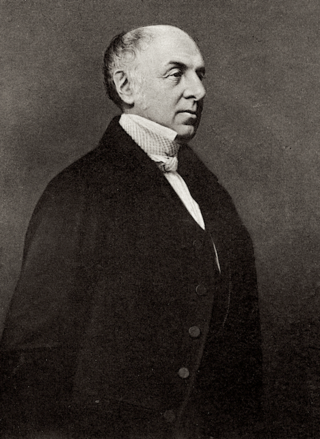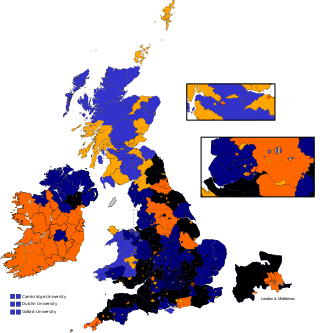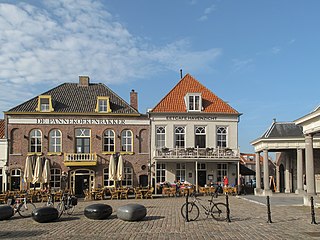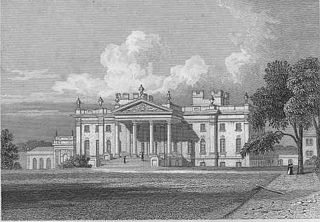Related Research Articles

Thomas Howard, 4th Duke of Norfolk,, was an English nobleman and politician. He was a second cousin of Queen Elizabeth I and held many high offices during the earlier part of her reign.

Earl of Carlisle is a title that has been created three times in the Peerage of England.

Sir James Robert George Graham, 2nd Baronet was a British statesman, who notably served as Home Secretary and First Lord of the Admiralty. He was the eldest son of Sir James Graham, 1st Baronet, by Lady Catherine, eldest daughter of the 7th Earl of Galloway.

Thomas Howard, 1st Earl of Berkshire was an English politician who sat in the House of Commons between 1605 and 1622. He was created Earl of Berkshire in 1626.
Robert Bertie, 3rd Earl of Lindsey PC FRS, styled Lord Willoughby de Eresby from 1642 to 1666, was an English nobleman.
Sir Frederick Fergus Graham, 5th Baronet KBE TD was a Conservative Party politician in the United Kingdom.
General Sir Charles Howard KB, styled The Honourable from birth, was a British soldier and politician.

East Cumberland is a former county constituency in the House of Commons of the Parliament of the United Kingdom. It elected two Members of Parliament (MPs) by the bloc vote system of election.

Henry Howard, 4th Earl of Carlisle KG, styled Viscount Morpeth until 1738 was a British Whig politician who sat in the House of Commons from 1715 to 1738 when he succeeded to the Peerage as Earl of Carlisle.
Nicholas Lechmere, 1st Baron Lechmere was an English lawyer and Whig politician who sat in the House of Commons from 1708 until 1721 when he was raised to the peerage as Baron Lechmere. He served as Attorney-General and Chancellor of the Duchy of Lancaster.
George William Beaumont Howard, 13th Earl of Carlisle, styled Viscount Morpeth from 1963 to 1994, is a British nobleman, politician, and hereditary peer.
Sir James Montagu, of the Middle Temple, London, was an English lawyer and Whig politician, who sat in the House of Commons at various times between 1695 and 1713. He became a judge and also served as Solicitor General and Attorney General.
Sir Gilfrid Lawson, 6th Baronet (1675–1749), of Brayton Hall, Cumbria, was an English lawyer and Tory politician who sat in the English House of Commons between 1701 and 1705 and in the British House of Commons from 1708 to 1734.
Sir Philip Howard was an English soldier and politician who sat in the House of Commons between 1659 and 1679.

Lieutenant General Roger Handasyd, also spelt Handaside, was an English military officer and Member of Parliament for different seats between 1722 and 1754.
The 1904 Gateshead by-election was a Parliamentary by-election held on 20 January 1904. The constituency returned one Member of Parliament (MP) to the House of Commons of the United Kingdom, elected by the first past the post voting system.

Thomas Duncombe was a British politician who sat in the House of Commons between 1751 and 1779.
Sir Ralph Howard, 1st Baronet was an Irish Whig politician and militia officer.
Edward Knubley was a British Member of Parliament, one of "Lord Lonsdale's ninepins". A client of Sir James Lowther, 5th Baronet, he was twice returned as member for Carlisle through Lonsdale's influence, only to have his election overturned on petition each time. He held local office and rank in northwestern England through Lonsdale's influence.
Lord Lonsdale's ninepins, Sir James's ninepins, or Lowther's ninepins, was a derogatory label applied to certain Members of Parliament during the Georgian era who owed their Parliamentary seats to the patronage of James Lowther, 1st Earl of Lonsdale (1736–1802).
References
- Hayton, David; Eveline Cruickshanks; Stuart Handley (2002). The House of Commons, 1690-1715. Cambridge University Press. p. 404. ISBN 9780521772211 . Retrieved 14 June 2008.